
Technological Leadership, B.S.
Preparing the problem-solvers of the future for success in our ever-changing world
What is Technological Leadership?
To thrive in our rapidly changing information age, students must learn how to think analytically, communicate compellingly, and learn continuously.
Technological Leadership prepares students with the skills needed for answering tomorrow’s questions and creating new knowledge, particularly in the fields of science and technology. Our students graduate with transferable skills that will always be in demand, no matter how the economy changes.
Let’s get started

What is the Technological Leadership B.S.?
The Technological Leadership B.S. is different: we are preparing students for real life.
In this innovative program, students learn complex problem-solving, critical thinking, and leadership through an interdisciplinary blend of classroom learning and research. Creative, hands-on problem-solving, team-based collaboration, critical thinking, intensive internships, and fundamental skills in writing, math, and coding prepare graduates to succeed in a wide range of endeavors, from the tech or finance industry, to think-tanks or consulting firms, to earning an advanced degree.
The heart of this major consists of “Thinking” and “Making” classes taken each semester.
- In Thinking classes, students explore big questions in a collaborative research setting Examples include, “What will the Moon look like after human settlement?” and, “What is the future of cars?”
- In Making classes, students engage in hands-on projects using software and lab tools to prototype devices, design new systems, or craft business solutions
Students also complete two immersive internship experiences designed to provide them with a portfolio of professional accomplishments and to establish a professional network as they plan their careers.
What can I do with this degree?
The Technological Leadership, B.S. differs greatly from traditional degree programs. Ideal students are motivated to contribute to society by finding answers to long-standing questions that prevent the progress of humanity.
The curriculum is not field-specific, but instead, provides graduates with strong skills in critical thinking and problem-solving, written and oral communication, leadership, and digital technology. As a result, the degree can be used to enter a variety of fields like tech, healthcare, aerospace production, manufacturing, telecommunications, cybersecurity, or green energy.
This degree is particularly well suited for students who are interested in careers that span multiple disciplines, such as entrepreneurship, management consulting, technology transfer, and product, project, and program management.
Curious about the pedagogical underpinnings of this degree? Learn more about Exploration Learning.
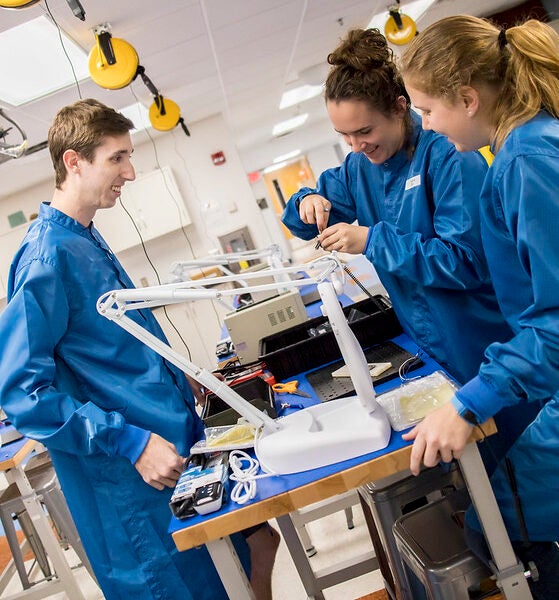
Instructors
The Interplanetary Initiative has coordinated a lineup of top academic minds including NASA researchers Lindy Elkins-Tanton, Evgenya Shkolnik, and Phil Christensen; influential designers such as professor Jake Pinholster; and other top researchers such as provost Nancy Gonzales (Foundation professor of psychology), Teresa Foulger of the Mary Lou Fulton Teachers College, and Timiebi Aganaba-Jeanty of the School for the Future of Innovation in Society.

Lindy Elkins-Tanton
Interplanetary Initiative &
School of Earth and Space Exploration
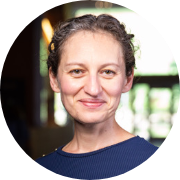
Evgenya Shkolnik
Interplanetary Initiative &
School of Earth and Space Exploration

Jake Pinholster
Herberger Institute for Design
and the Arts
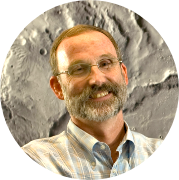
Phil Christensen
School of Earth and Space Exploration

Nancy Gonzales
Psychology
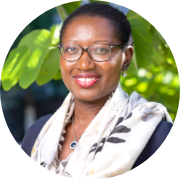
Timiebi Aganaba
School for the Future of
Innovation in Society

Phil Weaver-Stoesz
Herberger Institute for Design and
the Arts

Teresa Foulger
Mary Lou Fulton Teachers College

Sheri Klug Boonstra
Mars Space Flight Facility &
School of Earth and Space
Exploration

Sally Kitch
Humanities Lab & Women and
Gender Studies

Monica Boyd
Humanities Lab

Byron Lahey
School of Arts Media and
Engineering

Robert Short
Psychology

Eric Stribling
Interplanetary Initiative

Margaretha Bentley
School of Public Affairs

David Williams
School of Earth and Space

Lance Gharavi
Interplanetary Initiative & School of
Music, Dance, and Theater
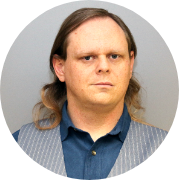
Patrick Young
School of Earth and Space
Exploration